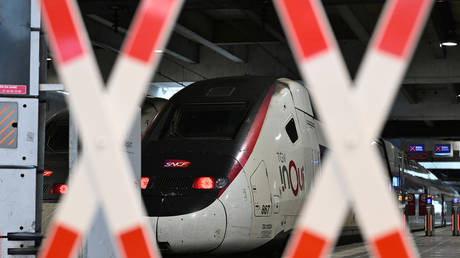Last weekend I spoke with an Eritrean man in his mid-30s. This man, born and raised in New York, possesses all the swagger of a typical Bronx native, from the way he says “coffee” down to the tag on his timberland boots. He told me something that I will never forget. He looked me in my eyes and said resolutely, “if push comes to shove, I will give my life for Eritrea. No questions asked.”
This is not the first time I have heard something like this from diaspora Eritreans. But, it begs the question: despite being halfway across the world and raised in diametrically opposed societies—how and why are diaspora Eritreans so steadfast in their love for the country?
Our Struggle
One of the unique things about the arc of Eritrea’s history is the fact that, despite being an ancient nation, our liberation victory occurred only 33 years ago (only 19 months before I came along). In fact, many millennial Eritreans were born, quite literally, in the middle of the liberation struggle. We were conceived in the spirits and wombs of freedom fighters. We were born directly onto the precious red soil that our mothers and fathers died defending. In essence, liberation and patriotism were as equally involved in our conception as sperm and egg.
The temporal proximity to the liberation struggle–a deeply visceral and historic era–further promulgates, reinvigorates, and reinforces our already deep sense of patriotism. We millennials and Gen Z are barely one generation removed from our war heroes. The same parents who picked us up from school, helped us with our homework, and took us Beit Cristian on Sunday mornings, or Mesghid on Fridays, were quite literally the same ones who forced an enemy retreat, carried lifeless comrades in their bare arms, operated heavy artillery, lost limbs, dodged shellfire, and marched countless miles in their Kongos/plastic sandals without the faintest promise of food or water on the horizon. This spirit of resilience, camaraderie, and patriotism doesn’t dissipate in the diaspora… it grows stronger. And that is because these stories—these firsthand accounts—from our parents are a North Star for us in times of extreme adversity and mental anguish.
Our Community
I would be remiss to discuss diaspora Eritreans’ devotion to the country without also exploring our strong attachment to our people. To quote a previous article I wrote:
“Eritreans are a communal people. It is an essential thread in the elaborate and colorful labyrinth that is our cultural fabric. Communalism is how Eritreans were able to—against all odds—mobilize against and prevail over a much larger and well-resourced aggressor. In short, to separate an Eritrean from his community is the equivalent of cutting a branch from a tree; a slow metaphysical death.
In the early 1970s, pioneering Eritrean immigrants recognized a desperate need for cultural reconnection and community among the diaspora. Many Eritreans who had settled in Europe and North America in hopes of broader economic opportunity were facing xenophobia, racism, language barriers, socioeconomic marginalization, and a substantial education gap. To exacerbate these precarious conditions, many Eritrean immigrants were now—for the first time ever—separated from their families, their land, and their community. As such, members of the diaspora began organizing festivals as a way for Eritreans to reconnect, and experience the warmth of their people in an otherwise foreign and inhospitable land.”
Our Culture
I have had the blessing and privilege of traveling to many countries as a young adult, and I can confidently say that Eritrean culture is incredibly unique. Eritrean culture is a strong counterweight to many of the social ills faced in the west, including loneliness, depression, hyper-productivity, burnout, excess, individualism, and social media addiction. Indeed, Eritrean culture serves as a panacea for these ailments because our culture is firmly rooted in family values, community, religion, respect for elders, honesty, traditionalism, an appreciation for gender roles, integrity, modesty, humility, work ethic, purity, and self-reliance. In fact, during my most recent trip to Eritrea in January, I overheard my uncle say, “Our culture brings us closer to God (and Allah for our Muslim brothers and sisters).”
Our culture serves as a wellspring for us diaspora Eritreans, replenishing our souls as we toil against xenophobia, racism, poverty, loneliness, and homesickness to provide for our families here and back home. Our culture and community serve as life-saving buoys amidst the choppy waters of economic migration and upward mobility.
Our Commitment
Now that I’ve explored our emotional bonds, let us examine this commitment in practical terms. Diaspora Eritreans are very financially committed to their families back home, sending regular remittances to support their loved ones. We also work hard to preserve our cultural heritage by organizing a myriad of events abroad, including the annual Eritrean Cultural Festival, the Independence Day Festival, events honoring historic military victories (e.g. Operation Fenkil), and events organized by various interest groups (e.g. HAMADEA). This is on top of the vibrant mix of weddings, graduations, and baptisms already occurring within our community.
We also remain engaged politically. I grew up watching my parents’ generation convene at the Eritrean Community Center on Saturday mornings to discuss the political and economic affairs of the country and how they can best self-organize to contribute to Eritrea’s wellbeing. I have also seen Eritreans on the political frontlines, protesting unjust sanctions that shaved off a decade of economic development.
Parting Thoughts:
Eritrea’s detractors – the Quisling League and other adversarial actors – are under the impression that their threats will deteriorate our love and commitment to Eritrea. They are wrong. Let me be unequivocally clear:
You may try choke our economy; you may diplomatically isolate us, you may spew false narratives about our heroes and attempt to undermine our hard-won freedom. You may even fan the flames of tension on our borders, but you will never kill our spirit. You will never destroy our unwavering devotion to our country. In fact, your efforts are only strengthening it. And for that, we thank you.
Awet n’ Hafash!




